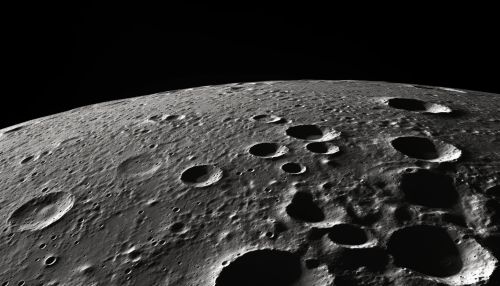Lunar water
Introduction
Lunar water or moon water is water that is present on the Moon. Direct evidence of lunar water came from the analysis of lunar rock samples returned by the Apollo program missions. Indirect evidence includes observations of the lunar surface by spacecraft, such as the Indian Chandrayaan-1 mission and NASA's Lunar Reconnaissance Orbiter.
History of Discovery
The existence of water on the moon has been a subject of scientific inquiry since the Apollo missions. The first direct evidence of water was found in lunar rock samples returned by the Apollo missions in the 1970s. However, the presence of water on the moon was not confirmed until the 2008 discovery by the Chandrayaan-1 mission.


Sources of Lunar Water
There are several potential sources of lunar water. These include internal volatiles, solar wind implantation, and cometary impacts.
Internal Volatiles
Internal volatiles are substances that are trapped within the moon during its formation. These can include water and other volatile compounds.
Solar Wind Implantation
Solar wind implantation is a process by which hydrogen ions from the solar wind can combine with oxygen in the lunar regolith to form water.
Cometary Impacts
Cometary impacts can also deliver water to the moon. When a comet impacts the moon, the water in the comet can be vaporized and then condense in the cold lunar environment.
Distribution of Lunar Water
The distribution of lunar water is not uniform across the moon's surface. It is primarily found in the polar regions, where temperatures are low enough to sustain water ice.
Significance of Lunar Water
The discovery of lunar water has significant implications for future lunar exploration and colonization. It could potentially be used as a resource for human consumption, as well as for the production of rocket fuel.
Future Research
Future research on lunar water will focus on determining its exact distribution, abundance, and origin. This will be crucial for planning future lunar missions and for understanding the moon's geological history.
